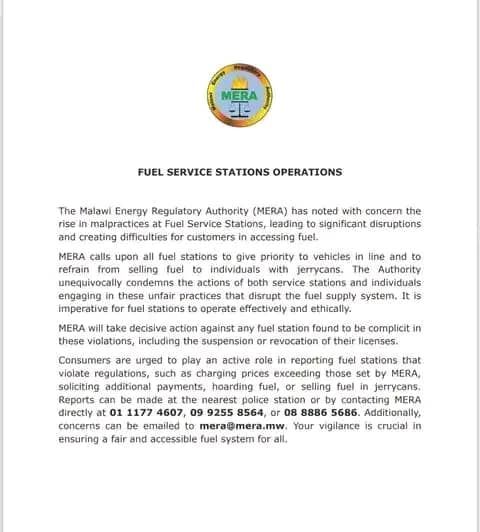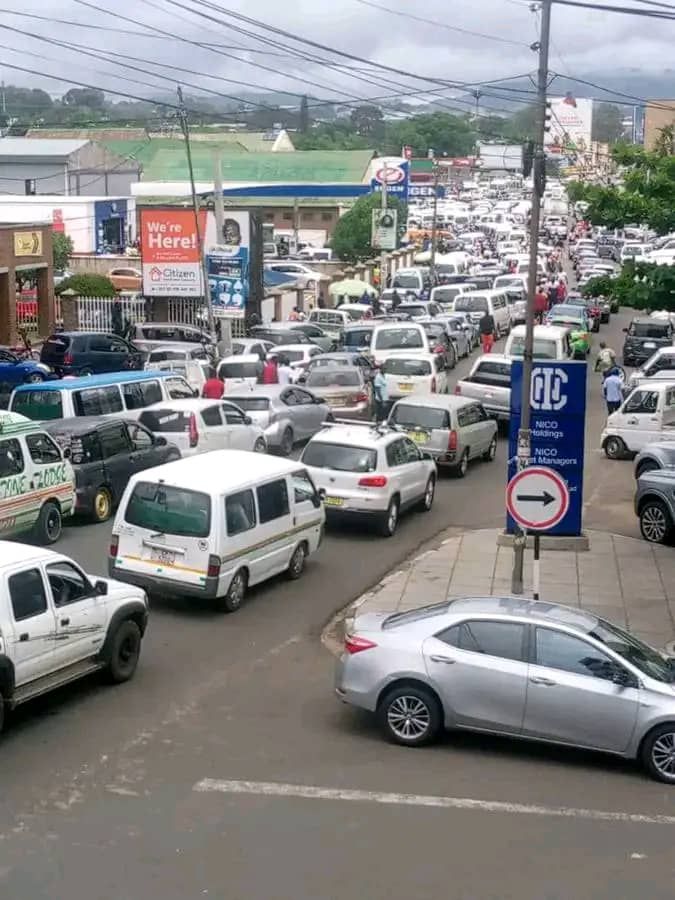By Burnett Munthali
Malawi continues to face a crippling fuel crisis that has paralyzed various sectors of the economy. While authorities attempt to enforce regulations like banning the purchase of fuel in jerrycans, ordinary citizens have raised valid concerns, questioning the practicality and logic behind such measures.
It is essential to acknowledge that fuel is not a necessity for vehicles and motorcycles alone. Fishermen who depend on engine-powered boats, millers using diesel-operated grinding machines, and farmers relying on water pumps to irrigate their crops are equally affected. How can these citizens sustain their businesses if they cannot purchase fuel conveniently?

One concerned citizen, Ellmann Msiska, lamented, “Kodi mukuwona ngati mafuta amafuna ndi amagalimoto ndi anjinga zamoto okha? Don’t you know kuti kuli asodzi ogwiritsa ntchito ma boat a engine, kuli azigayo za diesel?” (Do you think fuel is only for vehicles and motorcycles? Don’t you know there are fishermen and millers who rely on diesel?)
Citizens are demanding immediate solutions to the crisis. Some have questioned whether enforcing arbitrary bans on purchasing fuel in containers solves the problem or worsens it. One farmer expressed frustration, saying, “If water pumps cannot operate, how will we irrigate our fields?” Others wonder why they should continue paying taxes when the government appears to have no clear plan to address the crisis.
Another citizen sarcastically remarked, “Boat nalo lizipita pa filling station? Zinthu zakuvutani basi.” (Should boats go to the filling station? It’s clear you have failed to manage the situation.)
The public has also questioned the role of the leadership in addressing the crisis. Dalitso Jabbah Deleza pointedly asked, “Kodi bwana Kachaje alipo kapena anachoka?” (Is Energy Regulatory Authority CEO Henry Kachaje still in office or has he left?)
This question reflects growing impatience and skepticism toward those in charge of managing the fuel sector. Citizens feel let down by the lack of transparency and long-term planning to resolve the shortages.
The government must act swiftly to:
1) Import more fuel to stabilize the supply chain and reduce the strain on businesses and individuals.
2) Relax restrictive measures like banning fuel purchases in containers for specific groups like fishermen, millers, and farmers.
3) Provide regular updates to the public on what is being done to resolve the crisis and restore confidence in leadership.
As the frustration among Malawians grows, it is clear that the fuel crisis is more than just an inconvenience; it is a threat to livelihoods. Citizens deserve a government that listens, acts, and provides tangible solutions to their problems.
The time to end this crisis is now. Bring the fuel, and let the nation move forward.




